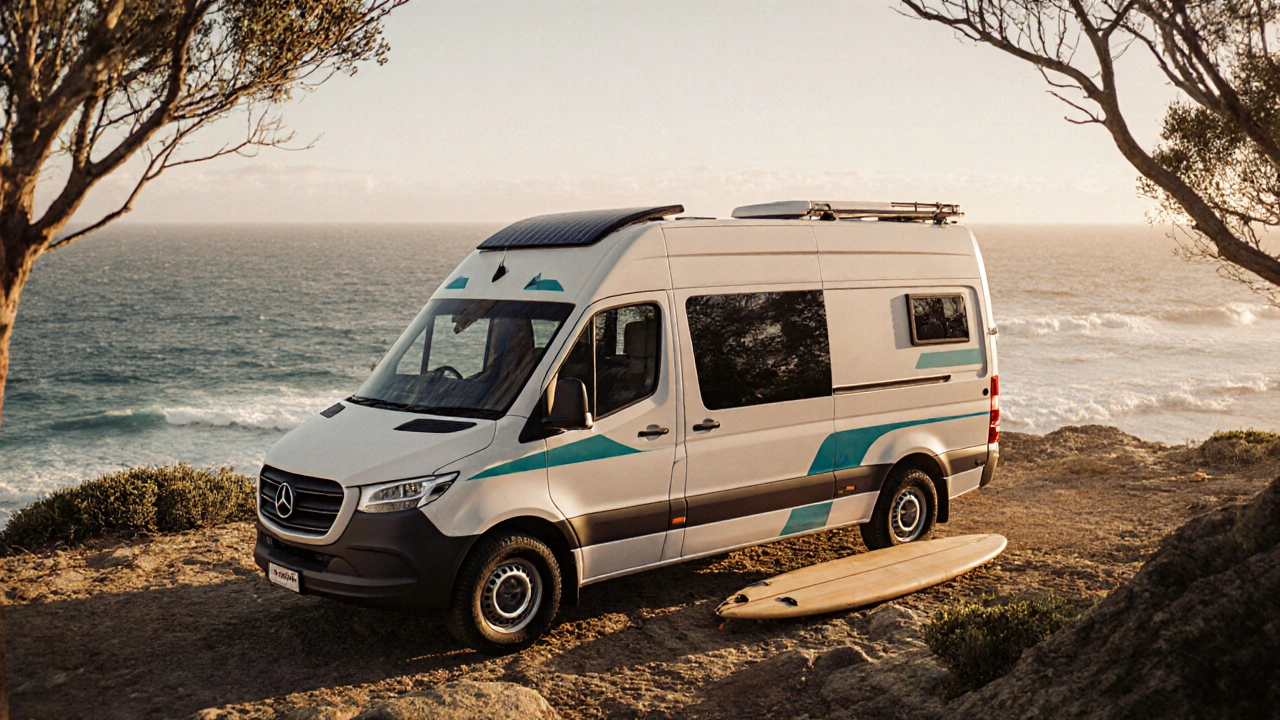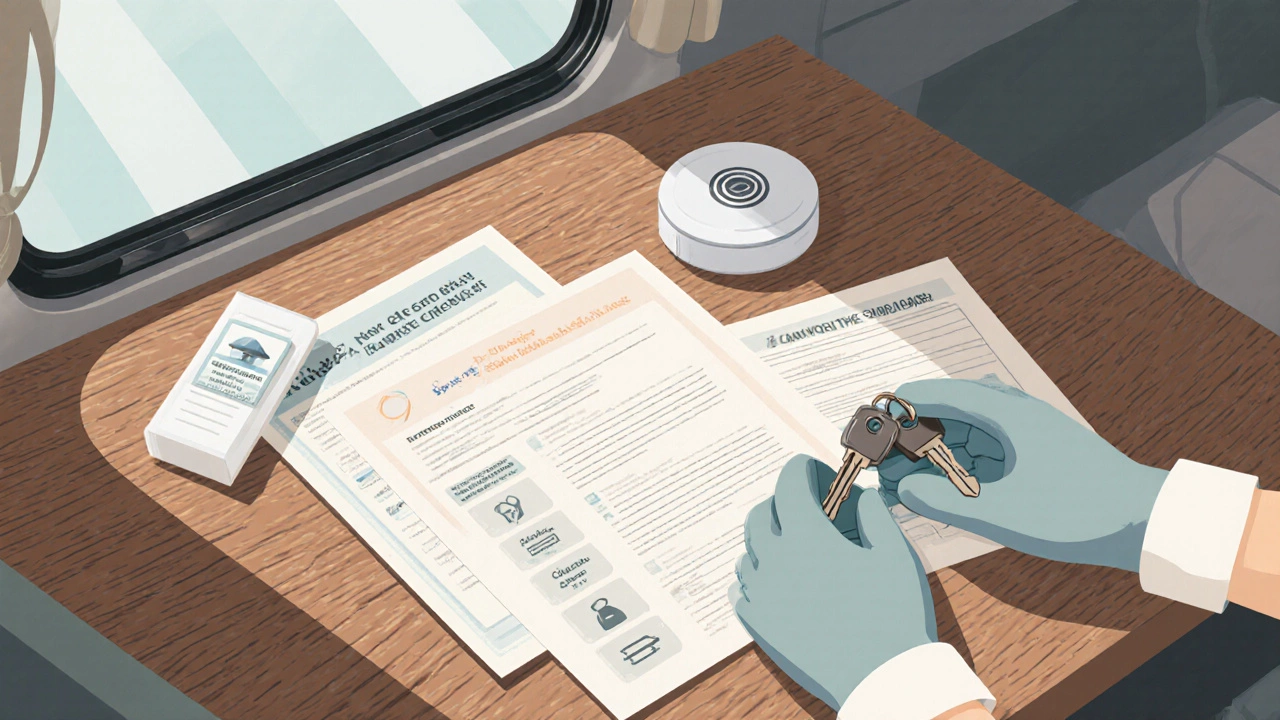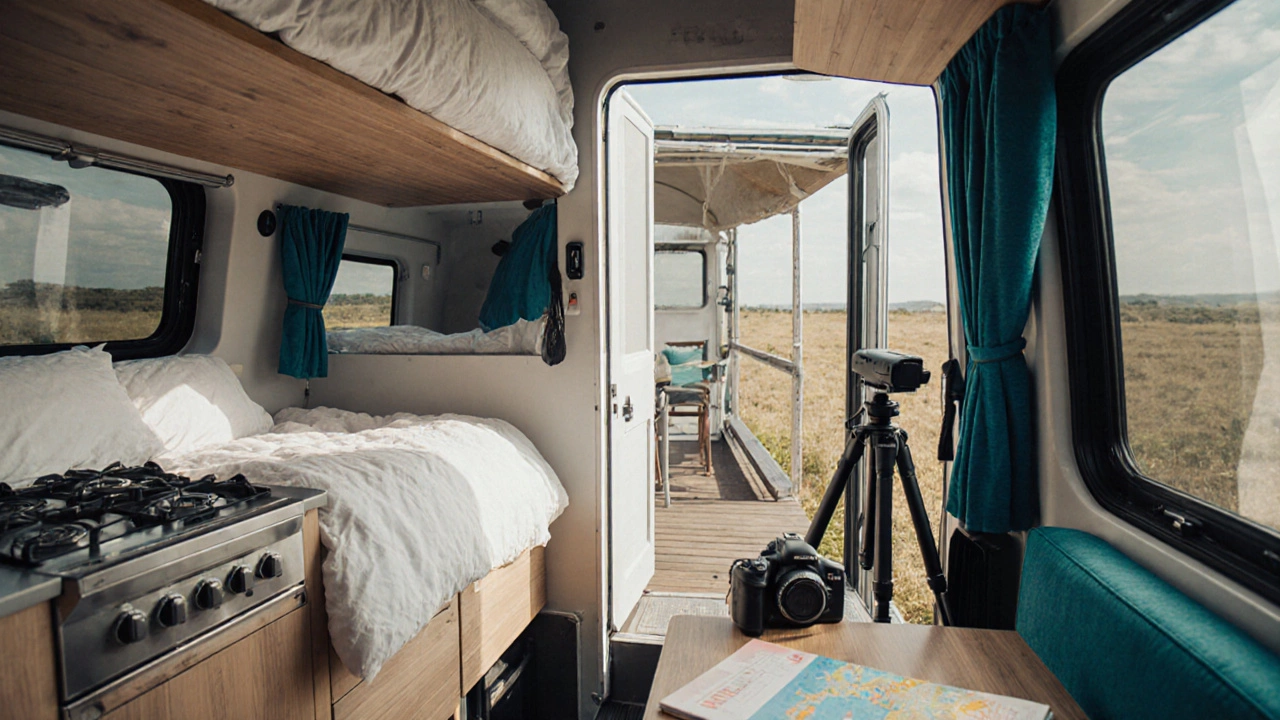Can I Airbnb My Campervan? A Complete Guide for Australian Owners
 Oct, 21 2025
Oct, 21 2025
Thinking about turning your home‑on‑wheels into a short‑term rental? You’re not alone. Hundreds of Aussie owners are wondering if they can list their campervan on Airbnb and start earning extra cash. The answer isn’t a simple yes or no - it depends on laws, insurance, taxes and a few practical steps. This guide walks you through everything you need to know before you hit ‘Publish’ on your listing.
What Airbnb Actually Allows for Campervans
Airbnb is a global marketplace for lodging, experiences and unique stays. The platform’s terms of service don’t single out campervans, but they require every listing to be a “legal, safe and habitable space” that complies with local regulations. In practice, that means your vehicle must meet the same standards you’d apply if you were hiring it out through a dedicated motorhome platform.
Airbnb also expects hosts to provide accurate descriptions, clear photos, and to have the necessary permits. If you can tick those boxes, the platform will generally let you create a listing.
State‑by‑State Legal Landscape in Australia
Australia’s states and territories each have their own rules for renting out a motorhome or campervan. Below is a quick snapshot of the key requirements.
- Western Australia (WA): You need a valid Roadworthy Certificate (RWC) and registration in the state. The Department of Transport permits private hire as long as the vehicle is classed as a ‘motorhome’ (Class M). No specific tourism licence is required, but you must comply with the Australian Consumer Law (ACL) for fair trading.
- New South Wales (NSW): A motorhome must be classified under the National Heavy Vehicle Regulator (NHVR) as a ‘light vehicle with living accommodation’. You’ll need a Motor Vehicle Licence that includes a > 7‑seat endorsement if you plan to carry more than four passengers. NSW also mandates a ‘Rental Vehicle Insurance’ endorsement if you charge for hire.
- Queensland (QLD): The Queensland Department of Transport requires a Vehicle Identification Number (VIN) check and a compliance certificate. QLD permits private rentals but imposes a nightly cap of 30 days for short‑term hires without a business licence.
- Victoria (VIC): The VicRoads system treats motorhomes as ‘caravans’ when they have fixed living facilities. You must have a valid Roadworthy Certificate and a Motor Vehicle Registration. Victoria also requires a ‘Hire Vehicle Registration’ if you earn over AU$5,000 a year from rentals.
- South Australia (SA) & Tasmania (TAS): Both jurisdictions follow the national standards set by the NHVR. You’ll need a Roadworthy Certificate, registration, and proof of insurance that covers commercial hire.
Because the rules vary, the safest approach is to check with your local transport authority before you list.
Tax Implications - What the Australian Taxation Office (ATO) Expects
Any income you earn from renting out your campervan is taxable. The ATO treats this as a business activity, even if it’s a side hustle. Here’s what you need to keep on record:
- All rental income (Airbnb payments, cleaning fees, extra mileage charges).
- Operating expenses - fuel, maintenance, insurance, depreciation, and platform fees.
- Home‑office style deductions if you manage bookings from a dedicated space.
You can claim depreciation on the vehicle using the prime cost or diminishing value method. Remember to keep a logbook if you also use the van for personal travel - only the business portion is deductible.
If you earn more than AU$75,000 annually, you’ll need to register for GST and charge it on bookings (Airbnb will usually collect and remit it for you, but you must still report it).

Insurance - Protecting Yourself and Your Guests
Standard private car insurance won’t cover commercial hire. You’ll need a policy that explicitly includes “renting out a motorhome” or “caravan hire”. Major Australian insurers such as NRMA, RACV and AAMI offer specialised cover. Key features to look for:
- Liability coverage for guest injuries.
- Collision and comprehensive cover while the vehicle is hired.
- Optional “trip interruption” insurance for guests.
- Cover for loss of income if the van is out of service due to an accident.
Some platforms (Camplify, Outdoorsy) bundle insurance into their booking fee, but Airbnb does not. If you list on Airbnb, you’ll need to arrange the policy yourself.
Safety and Compliance Checklist
Before you add your campervan to a listing, run through this quick safety audit:
- Confirm the vehicle’s registration and RWC are up to date.
- Check that the gas system (if you have a stove) is certified and has a recent safety inspection.
- Ensure smoke and carbon‑monoxide detectors are installed and functional.
- Provide clear instructions for operating the water, power and waste systems.
- Securely store all tools, spare tyres and first‑aid kits.
- Set occupancy limits according to the vehicle’s design - usually 2‑4 people.
- Test all electrical outlets and USB ports for safe voltage.
These steps not only keep guests safe but also protect you from liability claims.
Listing Your Campervan on Airbnb - Practical Tips
Creating a compelling Airbnb listing is part art, part science. Follow these proven tactics to attract bookings and earn higher rates.
- Title: Include the keyword Airbnb campervan and highlight a unique selling point (e.g., “Ocean‑view 4‑person campervan with rooftop deck”).
- Photos: Use natural light, show each sleeping area, kitchen, bathroom, and exterior. A 360° virtual tour can boost click‑through rates by up to 30%.
- Description: Be honest about dimensions, water capacity, power source (solar panel, inverter), and any quirks (e.g., low ceiling).
- Pricing: Check comparable listings on Camplify and Outdoorsy for your region, then set a nightly rate 10‑15% higher on Airbnb to offset the platform’s 3% host fee.
- House Rules: State pet policies, smoking bans, and maximum mileage per day. Clarify who is responsible for cleaning (you can charge a cleaning fee).
- Availability Calendar: Keep it up‑to‑date. Block out dates when you need the van for personal trips to avoid double‑bookings.
After your first booking, request a guest review. Positive reviews improve your ranking and let you charge premium prices.

Airbnb vs. Dedicated Campervan Platforms - Quick Comparison
| Feature | Airbnb | Camplify | Outdoorsy |
|---|---|---|---|
| Platform fee (host) | 3% of booking subtotal | 16% (includes insurance) | 15% (includes insurance) |
| Insurance included | No - must arrange yourself | Yes - comprehensive cover | Yes - comprehensive cover |
| Guest reach (global) | Very high - 4M+ nightly stays | Medium - 500k motorhome‑specific users | Medium - 600k motorhome‑specific users |
| Listing flexibility (prices, rules) | High - full control | Medium - some platform‑mandated rules | Medium - some platform‑mandated rules |
| Support for vehicle maintenance | None | Optional service partners | Optional service partners |
If you already have insurance and want maximum exposure, Airbnb can be a great add‑on. If you prefer an all‑in‑one solution, Camplify or Outdoorsy might save you time.
Pre‑Listing Checklist - Are You Ready?
- ✅ Registration and Roadworthy Certificate current.
- ✅ Commercial‑compatible insurance in place.
- ✅ Gas, smoke & CO detectors inspected.
- ✅ Detailed cleaning‑and‑maintenance schedule written.
- ✅ High‑resolution photos (at least 10).
- ✅ Competitive pricing research completed.
- ✅ Clear house rules drafted.
- ✅ Tax recording system set up (simple spreadsheet or accounting app).
If you can tick every box, you’re good to go. Otherwise, address the gaps first - it’s cheaper to fix problems now than after a guest complaint.
Frequently Asked Questions
Do I need a special licence to rent my campervan on Airbnb?
No separate licence is required by Airbnb itself, but each Australian state may demand a specific vehicle classification, a roadworthy certificate, and in some cases a commercial‑use endorsement on your driver’s licence.
Can I claim depreciation on my campervan?
Yes. The ATO allows you to depreciate the vehicle over its effective life (usually 8‑10 years). Choose the prime cost or diminishing value method, and keep a logbook if you also use the van privately.
What happens if a guest damages my campervan?
If you have commercial insurance with a damage waiver, the insurer will cover repair costs up to the policy limit. Without insurance, you can file a claim through Airbnb’s Host Guarantee, but it only covers up to AU$1 million and has many exclusions.
Do I need to collect GST on Airbnb bookings?
If your annual turnover from campervan rentals exceeds AU$75,000, you must register for GST and charge it. Airbnb typically handles GST collection for you, but you still need to report it in your BAS.
Is it worth listing on both Airbnb and a motorhome platform?
Many owners list on multiple sites to maximise occupancy. Just keep your calendars synced - most platforms let you import an iCal feed, which prevents double‑bookings.
Following these steps puts you on solid legal footing, protects your investment, and gives your guests a safe, enjoyable experience. Now you can confidently click “Publish” and watch the bookings roll in.